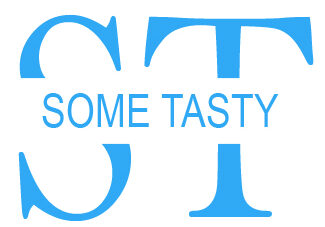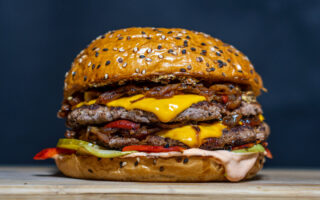Achieving a beach-ready body is a common goal as summer approaches, and diet plays a crucial role in this pursuit. While exercise is essential for toning muscles and burning calories, what you eat significantly influences your ability to shed fat and reveal a lean physique. Here are some unique and practical beach body diet tips to help you achieve your summer fitness goals.
1. Emphasize Whole Foods
Why It Matters: Whole foods are minimally processed and packed with essential nutrients, fiber, and healthy fats. They help keep you full longer and provide sustained energy.
Tips:
- Fruits and Vegetables: Incorporate a variety of colorful fruits and vegetables into your meals to benefit from a wide range of vitamins, minerals, and antioxidants.
- Whole Grains: Choose whole grains like quinoa, brown rice, and oats instead of refined grains to maintain stable blood sugar levels.
- Lean Proteins: Opt for lean protein sources such as chicken breast, fish, tofu, and legumes to support muscle maintenance and repair.
2. Hydrate Wisely
Why It Matters: Staying hydrated is crucial for overall health, and it can also aid in weight loss by helping control hunger and boosting metabolism.
Tips:
- Water: Aim to drink at least eight glasses of water a day. Start your day with a glass of water to kickstart your metabolism.
- Infused Water: Add slices of lemon, cucumber, or berries to your water for a refreshing flavor without extra calories.
- Limit Sugary Drinks: Avoid sugary sodas, energy drinks, and fruit juices that can add unnecessary calories and contribute to weight gain.
3. Smart Snacking
Why It Matters: Healthy snacks can prevent overeating during meals and keep your metabolism active throughout the day.
Tips:
- Nuts and Seeds: A handful of almonds, walnuts, or chia seeds provides healthy fats, protein, and fiber.
- Greek Yogurt: Opt for plain Greek yogurt with fresh fruit for a protein-packed snack.
- Vegetable Sticks and Hummus: Carrot, cucumber, and bell pepper sticks with a serving of hummus make for a satisfying, low-calorie snack.
4. Balance Your Macronutrients
Why It Matters: A balanced intake of carbohydrates, proteins, and fats ensures your body gets the fuel it needs for energy, muscle repair, and overall function.
Tips:
- Carbohydrates: Focus on complex carbs like sweet potatoes, whole grains, and legumes, which provide sustained energy and fiber.
- Proteins: Include a source of lean protein in every meal to support muscle growth and repair.
- Fats: Incorporate healthy fats from avocados, nuts, olive oil, and fatty fish to promote satiety and overall health.
5. Portion Control
Why It Matters: Eating appropriate portion sizes helps prevent overeating and supports a calorie deficit, which is necessary for fat loss.
Tips:
- Use Smaller Plates: Using smaller plates can help control portion sizes and prevent overeating.
- Mindful Eating: Pay attention to your hunger and fullness cues. Eat slowly and savor each bite to avoid consuming more than you need.
- Pre-Portioned Snacks: Prepare snacks in advance in appropriate portions to avoid the temptation of eating straight from the package.
6. Limit Added Sugars and Processed Foods
Why It Matters: Added sugars and processed foods often contain empty calories and unhealthy fats that can hinder your weight loss efforts.
Tips:
- Read Labels: Check ingredient lists for hidden sugars and avoid products with high amounts of added sugars.
- Homemade Meals: Prepare meals at home where you can control the ingredients and avoid the added sugars and unhealthy fats commonly found in restaurant and pre-packaged foods.
- Natural Sweeteners: If you need to sweeten your food, use natural sweeteners like honey or maple syrup in moderation.
7. Plan and Prep Your Meals
Why It Matters: Planning and preparing meals in advance can help you make healthier choices and avoid the temptation of convenience foods.
Tips:
- Meal Prep: Set aside time each week to prepare meals and snacks. Store them in portioned containers for easy access.
- Grocery List: Make a list of healthy foods before grocery shopping to avoid impulse buys of unhealthy options.
- Batch Cooking: Cook larger quantities of healthy meals and freeze portions for days when you’re short on time.
8. Include Metabolism-Boosting Foods
Why It Matters: Certain foods can help boost your metabolism, aiding in weight loss and fat burning.
Tips:
- Green Tea: Drink green tea, which contains catechins that can enhance fat burning.
- Spicy Foods: Add chili peppers or hot sauce to meals to benefit from the metabolism-boosting effects of capsaicin.
- Protein-Rich Foods: Consuming protein-rich foods can increase the thermic effect of food, meaning your body burns more calories digesting protein.
Conclusion
Achieving a beach-ready body involves more than just exercise; it requires a thoughtful approach to diet. By emphasizing whole foods, staying hydrated, snacking smartly, balancing macronutrients, controlling portions, limiting added sugars and processed foods, planning meals, and including metabolism-boosting foods, you can create a sustainable eating plan that helps you look and feel your best. Remember, consistency is key, and small, healthy changes can lead to significant, long-lasting results.





[…] Beach Body Diet Tips […]